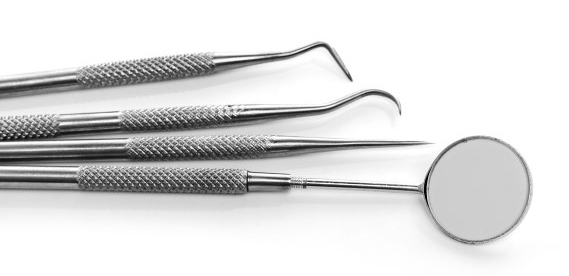PUBLISHED IN TCI WEEKLY NEWS
August 17th 2013

If you are suffering with sore, swollen or bleeding gums it is likely to be as a result of one of two issues- either how you are cleaning your teeth or gum disease.
Gum DiseaseTooth Brushing & Flossing Technique
In the quest to keep teeth clean, you might be tempted to brush teeth as vigorously as you can. However brushing the wrong way can irritate or damage the delicate tissue of the gums causing soreness, bleeding and in the long term recession. When you brush, use a medium or soft bristled brush and ensure you use gentle, circular motions to massage and clean the teeth and gums. When flossing, take your time and, rather than forcing the floss between your teeth, carefully slide it up and down, following the curve of each tooth.
Gum disease is caused by bacteria in the mouth. If these bacteria are not regularly removed a film called plaque forms which then leads to hard deposits called calculus accumulating on the teeth. These give a home for bacteria. Initially if plaque is left on the teeth unchecked, the gums will become inflamed. This is gingivitis. The symptoms to watch out for are soreness, plus red and swollen gums that bleed easily. This is a mild form of gum disease and can be reversed with daily brushing, flossing and regular cleanings at your dentist. At this stage there is no loss of bone or tissue.
When gingivitis remains untreated it can advance to periodontitis- inflammation around the tooth. With periodontitis, gums pull away from the tooth and pockets form (gaps between the teeth and the gum) that become infected. As well as the gums being inflamed they will be painful and bleed very easily and sometimes quite heavily.
 As your body fights this infection, bacterial toxins and the body’s natural response to infection start to breakdown the bone and connective tissue (periodontal ligament) that hold the teeth in place. If left untreated, this will progress until the tooth becomes loose and has to be removed.
As your body fights this infection, bacterial toxins and the body’s natural response to infection start to breakdown the bone and connective tissue (periodontal ligament) that hold the teeth in place. If left untreated, this will progress until the tooth becomes loose and has to be removed.
Treatment depends on the severity of the problem. Routine professional cleaning and removal of calculus deposits above the gum plus regular brushing and flossing at home is essential. If periodontal disease has progressed then dark deposits can be seen under the gum. These must be removed by a dentist or hygienist and the root cleaned to enable the pocket to reduce and heal. Occasionally it becomes necessary to perform gum surgery to eliminate pocketing, or to visually check the root surface is clean and smooth and even in some cases to attempt to repair bone defects around the tooth with a graft.